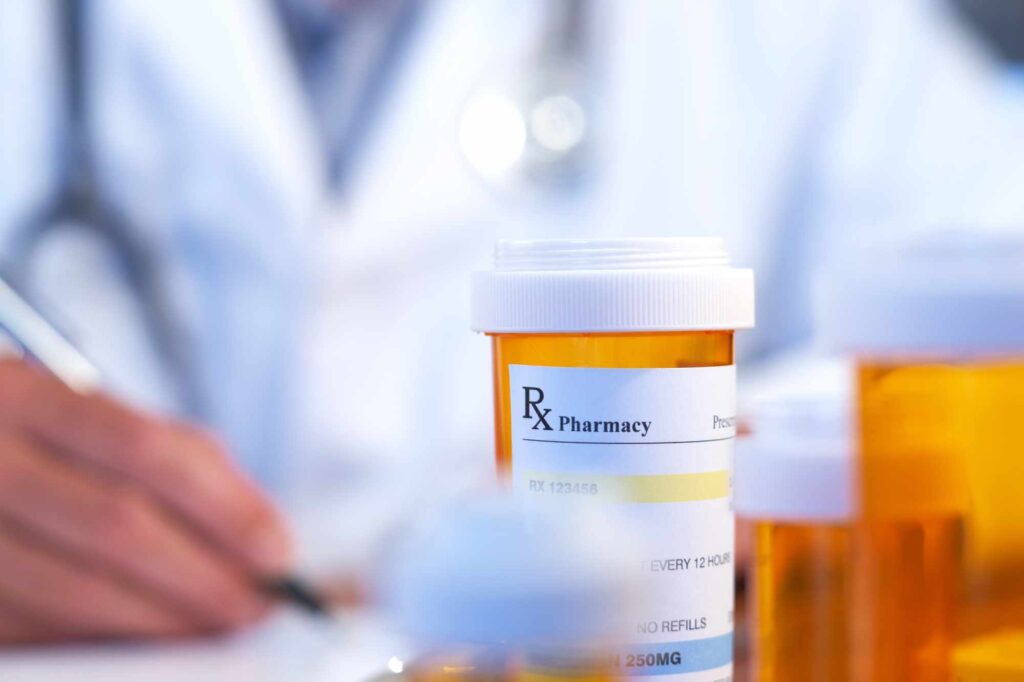No one is immune to prescription drug addiction. People in every age group are at risk of becoming addicted when taking pain medication, other prescription drugs and over-the-counter medicines. Becoming addicted to prescription medications can lead to more significant problems, including poor health, crime, accidents and graduating to other drugs, such as Fentanyl, which can be lethal.
Understanding how individuals begin abusing prescription drugs is necessary to help them overcome addiction. Knowing the commonly abused prescription drugs and the symptoms of prescription drug abuse can help concerned loved ones find help for people struggling with addiction.

For many people, addiction to prescription drugs starts innocently. When they take pain medication, some people may feel the dose prescribed by their health care provider is insufficient to do the job, which can lead to taking more of a drug to achieve pain relief. Taking too much medication can lead to dependency or an unintentional overdose.
There are limits on the number of prescription painkillers a health care provider can prescribe. When there are signs that a patient is misusing medication, such as opioid painkillers, the prescriber may refuse to prescribe them to reduce a patient’s chances of dependence or addiction.
It’s not unusual for people in pain to seek relief wherever they can find it, and if they’re addicted to prescription drugs, they may turn to street sources that put them at risk for pills containing toxic and often lethal substances.
Health care professionals who work where they can access prescription drugs sometimes start abusing them. When a health care worker responsible for caring for others misuses prescription drugs, that can put patients in danger of not getting the needed medications. Also, a health care provider under the influence of drugs puts patients at risk for harm when they can’t perform their duties with a sound mind.
Adolescents and teens can become addicted to drugs from medicines kept in their homes. Taking a few pills from their parents’ medicine cabinets and sharing them with friends may seem harmless and fun to young people. However, misusing prescription drugs can lead to addiction, accidental overdoses and long-term health risks.
Young people may also mix prescription drugs with alcohol, which can be perilous. Using prescription drugs puts teens at risk for other dangerous behaviors such as unprotected sex and impaired driving. Using drugs at a young age, when the brain is still developing, also puts young people at risk for addiction later in life.
Older adults can become addicted to prescription drugs if they take them when they don’t need them or take more than required. Sometimes when a senior takes too much medication, it can be due to poor vision or failure to understand the instructions.
Mixing prescription drugs or taking them with alcohol can also be a problem for older adults. Combining prescription medications with over-the-counter drugs is also risky for seniors.
It’s common for people to misuse prescription opioids that doctors prescribe for pain relief, such as:
Commonly abused central nervous system depressants for anxiety and sleep disorders include:
Addictive prescription stimulants include:
Individuals using prescription drugs recreationally typically exceed the amounts medical professionals prescribe, which can lead to overdose.
Some prescription drug abuse symptoms are similar across the drug types, while others are common to a specific drug. The individual who misuses opioids can experience:
Another telltale sign of opioid abuse is being unable to achieve pain control, even with higher doses.
Antianxiety, depression and sleep drug misuse can cause:
When the body becomes accustomed to drugs and doesn’t get them, it will respond in ways that cause mental and physical discomfort. When an individual is addicted to prescription drugs and can’t get them or tries to stop using them suddenly, they often experience withdrawal symptoms.
Common withdrawal symptoms include
Withdrawal can be dangerous, which is why it’s vital for a person with prescription drug addiction to seek treatment to help them stop using.

Drug addiction rehab programs help individuals dealing with prescription drug addiction. Olympus Recovery’s prescription drug addiction treatment offers substance abuse treatment programs to meet the needs of people who’ve decided to stop abusing prescription drugs.
At Olympus Recovery, we treat substance abuse in a welcoming environment where you receive evidence-based, affordable, high-quality treatment that addresses your unique substance abuse issue. We’ll discuss things you need to know about the program during the admissions process.
Once you enter the program, you can expect our professionals to provide the treatment you need to break the grip of prescription drug addiction. Medical detox will help you deal with drug cravings and painful withdrawal symptoms, and you’ll be better able to focus on the work of getting better.
Our treatment includes individual therapy to help you identify thoughts and feelings contributing to your desire to use prescription drugs. Group therapy allows sharing and learning from peers in a nonthreatening, supportive environment. The communication skills developed during group therapy can help improve relationships outside the treatment program. We also offer experiential therapy that includes art, music, poetry and dealing with horses.
We also encourage family members to participate in family therapy to address issues and improve understanding of addiction’s impact on the family. Our staff also works diligently to link patients to aftercare resources to help reduce the risk of relapse.
If you or a person you know needs help to stop abusing prescription drugs, Olympus Recovery can help. We have staff who are ready to take your call and schedule a time for an assessment, and with your input, we’ll help you get started by developing a treatment plan to beat drug dependency. Contact us at (866) 305-7134 today.
